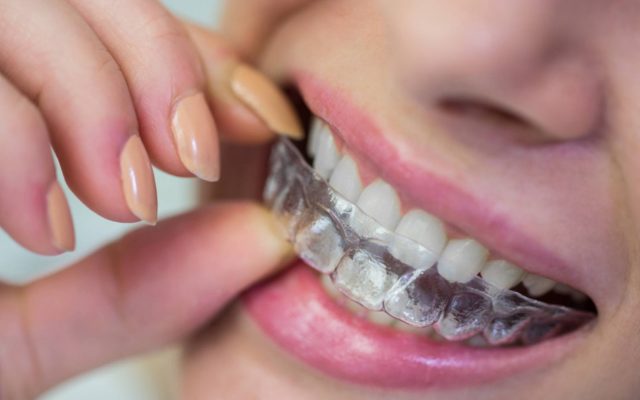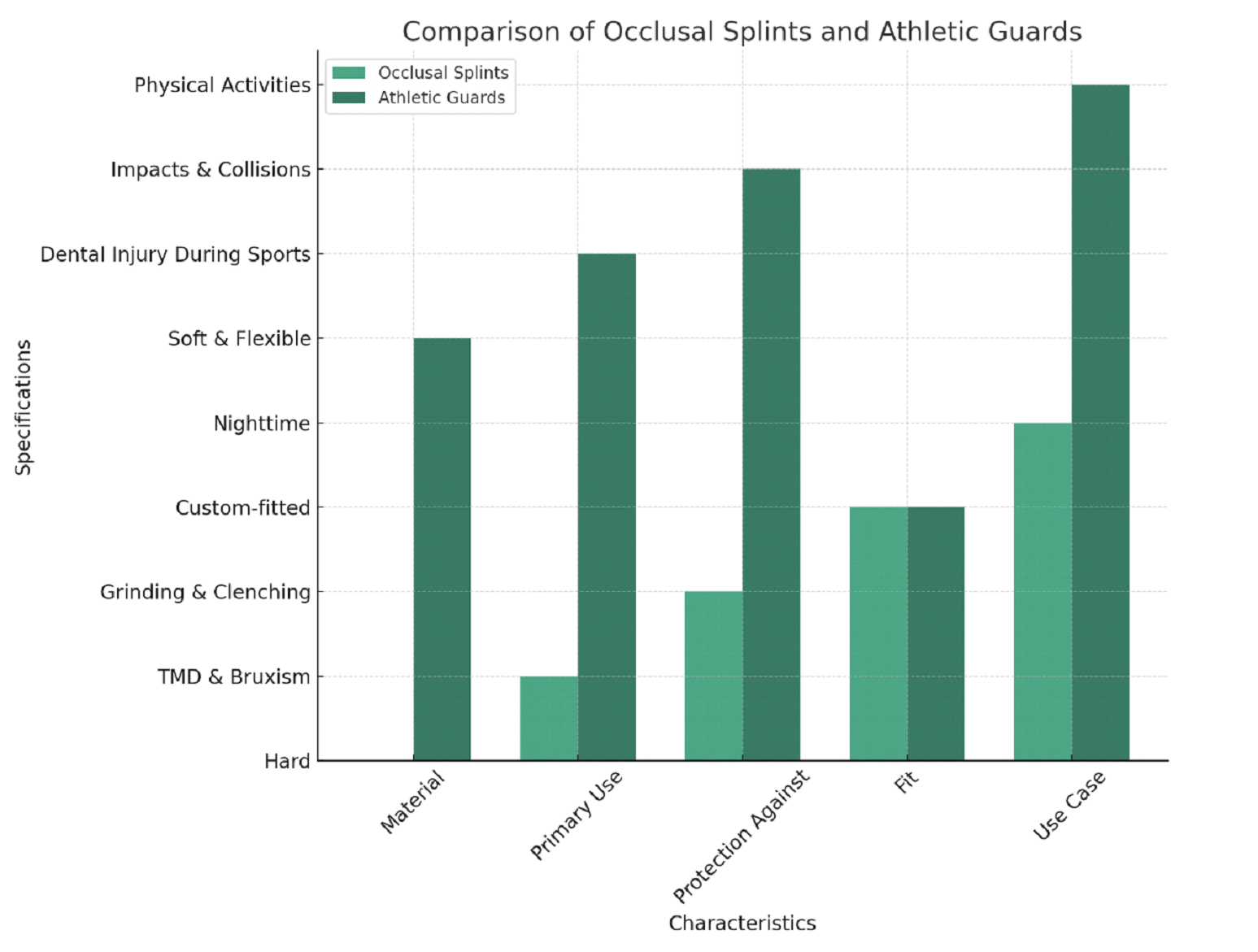VISIT US:
CALL US:
VISIT US:
CALL US:

In the realm of dental health and protection, two devices stand out for their specific uses and benefits: the occlusal splint, often referred to as a night guard, and the athletic guard.
While both serve to protect the teeth, they are designed for markedly different purposes, and understanding these differences is important for anyone looking to address issues such as temporomandibular disorder (TMD), nighttime teeth grinding (bruxism), or dental injury during sports.
This article delves into the distinctions between occlusal splints and athletic guards, outlining their uses, materials, and the reasons why they should not be used interchangeably.
Occlusal splints, or night guard , are dental devices crafted from hard materials and are custom-fitted to the individual’s mouth.
Their primary function is to manage and mitigate the effects of temporomandibular disorder (TMD) and to prevent the harmful effects of nighttime teeth clenching and grinding, known as bruxism. Bruxism can lead to severe dental wear, damaging the teeth’s enamel and leading to sensitivity and other oral health issues.
The design of an occlusal splint allows it to evenly distribute the force exerted during clenching or grinding, which can significantly reduce muscle tension in the face and jaw. This relaxation of the muscles can alleviate symptoms associated with TMD, such as headaches, facial pain, and trigger points that may cause referred pain elsewhere in the body. By preventing the back molars from making contact, these splints stop further tooth wear and guard against the flattening and chipping of teeth.
Occlusal splints are characterized by their hard, durable material, which is essential for effectively managing the forces exerted by the jaw during the night. This rigidity ensures that the jaw can move freely without causing the teeth to grind against each other, offering a protective barrier that shields the teeth from damage.
Athletic guards, on the other hand, are designed with physical activity in mind. Made from softer, more flexible materials, these guards are intended to absorb shock and protect the teeth from trauma during sports and other physical activities.
Activities such as biking, soccer, basketball, football, boxing, and mixed martial arts (MMA) can pose significant risks to dental health, from impacts with equipment and falls to collisions with other players. Athletic guards are engineered to cushion the teeth and reduce the risk of injuries such as fractures, chips, and avulsions (complete displacement).
The thickness and softness of an athletic guard are crucial features that contribute to its effectiveness in distributing the force of an impact.
Unlike occlusal splints, athletic guards are not meant to be worn at night. The soft, rubbery material can encourage the jaw muscles to activate as if chewing, which may lead to increased muscle tension and discomfort, exacerbating conditions like TMD rather than alleviating them.
While both occlusal splints and athletic guards play protective roles, their applications are distinct, and using one as a substitute for the other can lead to adverse effects. For instance, wearing an athletic guard at night can increase muscle activity and tension, potentially worsening bruxism and TMD symptoms. Conversely, an occlusal splint is not designed to absorb the kind of impacts expected during sports, offering insufficient protection against trauma.
It’s essential for individuals to consult with dental professionals when choosing between these devices. A dentist can provide a diagnosis, recommend the appropriate device based on the individual’s specific needs, and ensure a custom fit for optimal protection and comfort.

While occlusal splints offer a solution for managing TMD and preventing nighttime teeth grinding, athletic guards are designed to safeguard the teeth during physical activities. Proper use and consultation with a dental professional can ensure that individuals choose the right device for their needs, avoiding misuse that could lead to further discomfort or injury.
Mon-Thurs: 8AM to 5PM
Fri-Sun: Closed